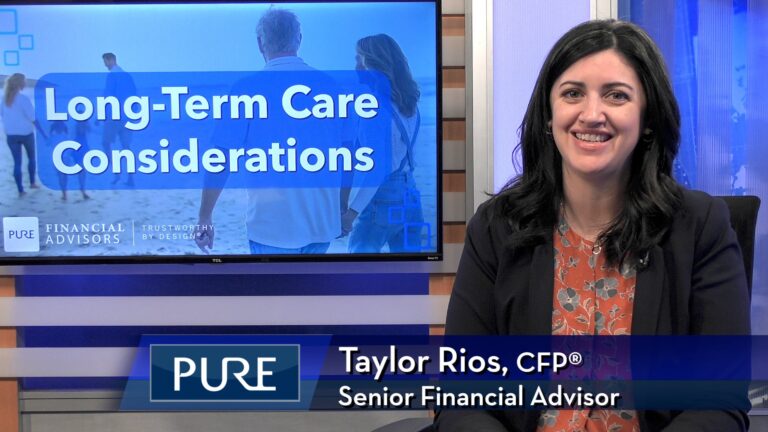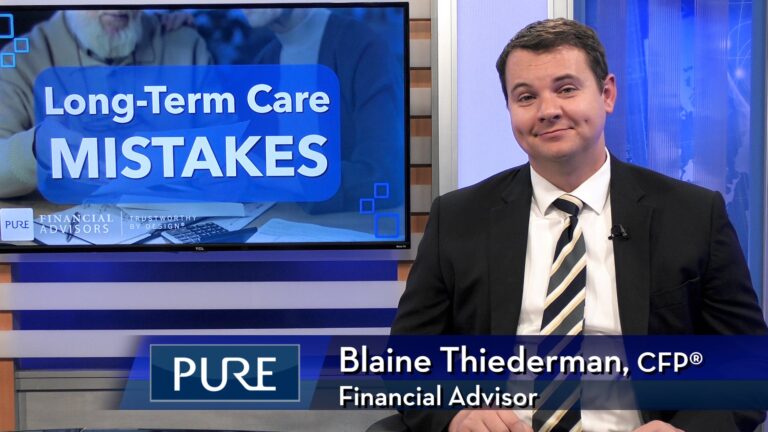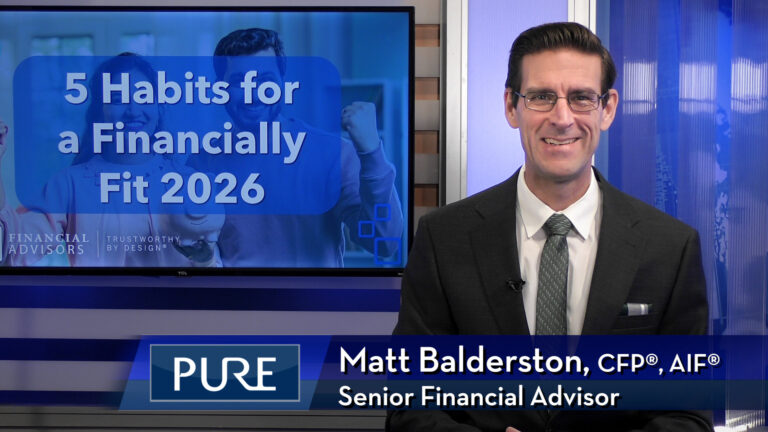There are a number of major tax law changes being hammered out in Congress right now. How will new tax reform impact how much you pay in tax and your retirement planning? In this webinar, Your Money, Your Wealth® hosts Joe Anderson, CFP®, President of Pure Financial Advisors, and Big Al Clopine, CPA, Pure Financial’s CEO and CFO, break down the potential changes. They also discuss strategies to minimize your tax burden, and they answer many tax questions from webinar attendees.
TAX BASICS
Gross Income and Adjustments
Adjusted Gross Income (AGI)
Standard Deduction
Itemized Deductions
Taxable Income
Tax Credit
POTENTIAL TAX LAW CHANGES
Proposed Ordinary Income Tax Changes
Current Tax Rates vs. 2026 Tax Rates
Imposing Social Security Payroll Tax
Capping Benefit of Itemized Deductions
Increasing Capital Gains Tax
No Step-Up in Basis
Real Estate Tax Exemption
Raising Corporate Income Tax Rates
QUESTIONS
Is the SECURE 2.0 any closer to being passed in Congress? If so, I believe RMDs age increase happens once again. Is that correct?
Is alternative minimum tax back? How do they figure AMT?
If these tax changes pass before the end of 2021 when would they start?
Any concerns politicians may end up taxing Roth withdrawals?
Do net investment income taxes (3.8%) apply to Roth conversions?
What pieces of the Roth IRA/401K/backdoor conversions are proposed to be banned starting 1/1/2022? I’m a bit unclear what is getting phased out over time (2028/2029) vs immediate stop in 2022.
Now that backdoor roth conversions will be gone are there any alternative options left?
Was there talk about retroactive on capital gains increase to March 2021?
Is there any indication of changes to taxation of Social Security benefits?
When you do a ROTH conversion are taxes automatically deducted as part of process?
I’m 70. Should I convert my 401k entirely to a Roth IRA this year or do it over 2 yrs?
I have 50K in a savings account. Can I transfer all of it to a Roth IRA?
I was advised not to convert IRA funds to ROTH due to my tax rate which is already high. Why would my invesment counselor and CPA so advise? My MAGI is well under $100K
Can you put pension $ that has been taxed into a roth a/c
Thoughts about borrowing against high unrealized appreciated assets expected to step-up upon death to avoid taxation altogether?
For people on Medicare doing Roth Conversions, how should you take in account Medicare premium?
I have rolled over my 401k to IRA. I am afraid to invest lump sum converted money in the market. What should be my strategy?
Subscribe to our YouTube channel.
IMPORTANT DISCLOSURES:
• Investment Advisory and Financial Planning Services are offered through Pure Financial Advisors, LLC. A Registered Investment Advisor.
• Pure Financial Advisors, LLC. does not offer tax or legal advice. Consult with a tax advisor or attorney regarding specific situations.
• Opinions expressed are subject to change without notice and are not intended as investment advice or to predict future performance.
• Investing involves risk including the potential loss of principal. No investment strategy can guarantee a profit or protect against loss in periods of declining values.
• All information is believed to be from reliable sources; however, we make no representation as to its completeness or accuracy.
• Intended for educational purposes only and are not intended as individualized advice or a guarantee that you will achieve a desired result. Before implementing any strategies discussed you should consult your tax and financial advisors.
CFP® – The CERTIFIED FINANCIAL PLANNER™ certification is by the Certified Financial Planner Board of Standards, Inc. To attain the right to use the CFP® designation, an individual must satisfactorily fulfill education, experience and ethics requirements as well as pass a comprehensive exam. Thirty hours of continuing education is required every two years to maintain the designation.
AIF® – Accredited Investment Fiduciary designation is administered by the Center for Fiduciary Studies fi360. To receive the AIF Designation, an individual must meet prerequisite criteria, complete a training program, and pass a comprehensive examination. Six hours of continuing education is required annually to maintain the designation.
CPA – Certified Public Accountant is a license set by the American Institute of Certified Public Accountants and administered by the National Association of State Boards of Accountancy. Eligibility to sit for the Uniform CPA Exam is determined by individual State Boards of Accountancy. Typically, the requirement is a U.S. bachelor’s degree which includes a minimum number of qualifying credit hours in accounting and business administration with an additional one-year study. All CPA candidates must pass the Uniform CPA Examination to qualify for a CPA certificate and license (i.e., permit to practice) to practice public accounting. CPAs are required to take continuing education courses to renew their license, and most states require CPAs to complete an ethics course during every renewal period.













